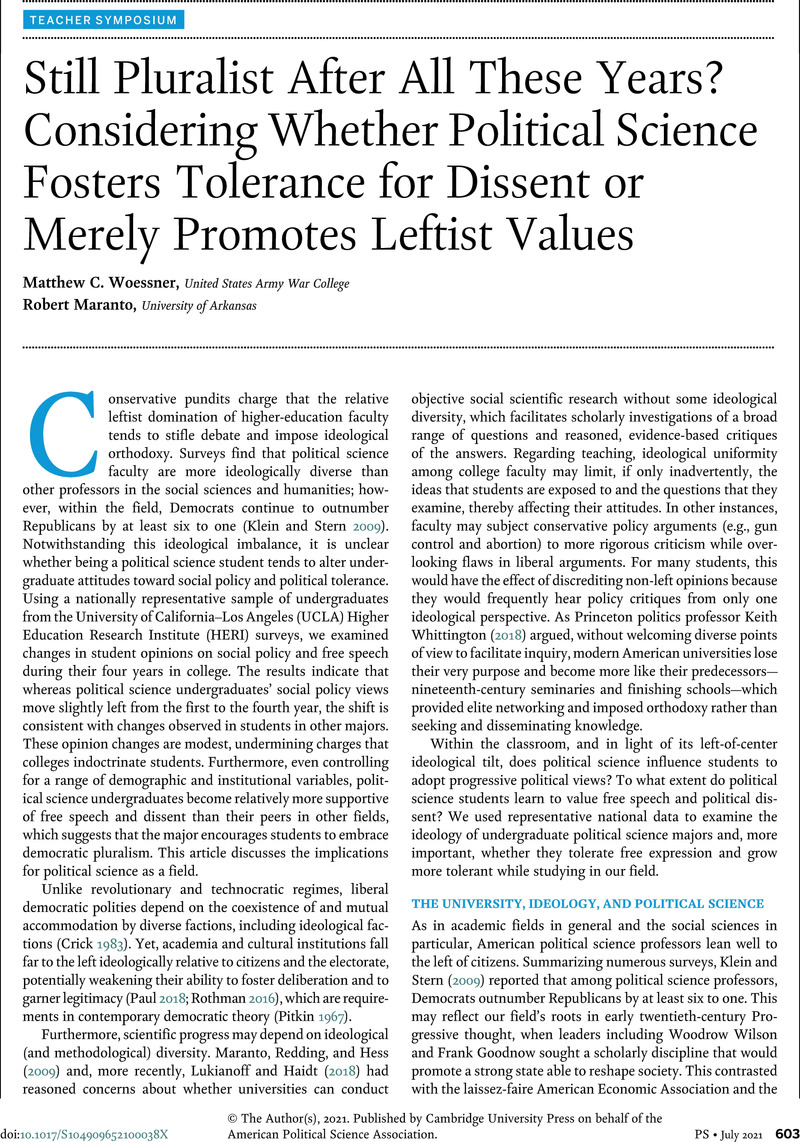Crossref Citations
This article has been cited by the following publications. This list is generated based on data provided by Crossref.
Rom, Mark Carl
2021.
Time to Rethink Your Teaching Ideology?.
PS: Political Science & Politics,
Vol. 54,
Issue. 3,
p.
587.
Metzgar, Matthew
and
McGowan, Mary Jo
2022.
Viewpoint Diversity at UNC Charlotte.
Acta Educationis Generalis,
Vol. 12,
Issue. 3,
p.
1.





